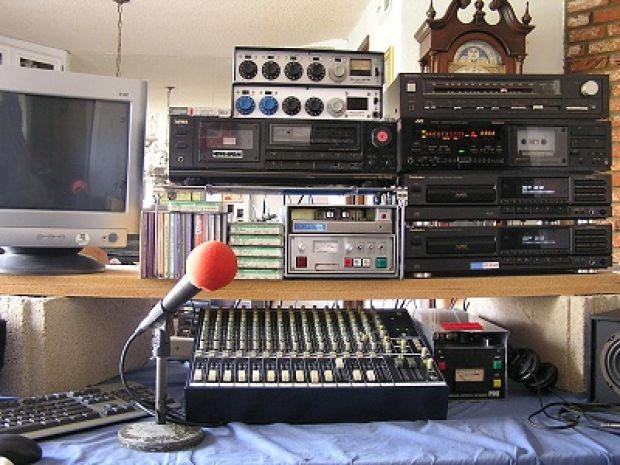The not-so-smooth sounds of intermittent FM radio may soon be a thing of the past for locals cruising down Pacific Coast Highway or through Malibu’s canyon roads.
The Federal Communications Commission (FCC) on Tuesday announced it would begin issuing licenses for two low-frequency Malibu radio stations in January—one as 99.1 in the Civic Center area and another as 97.5 on the west end in the Point Dume/ Zuma Beach area.
A group of nine residents banded together last month to apply for the stations in the hope of creating Malibu-centric programming to broadcast music, talk radio, podcasts, traffic updates, and crucial emergency and disaster communications.
“Most importantly, when the city, the Sheriff’s department, the fire department or the tsunami warning [center] need to talk to Malibu, they get [access to] the radio station,” said Hans Laetz, a central organizer of the radio effort. “If a pole falls over on PCH and blocks traffic, [city emergency services coordinator] Brad Davis can feed us a bulletin and we’ll just run it continuously so people know they can tune to 99.1 or 97.5 to find this out.”
Four locals sit on a board that applied for the eastern station, 99.1: Councilman Lou La Monte, Malibu Times Publisher Arnold York, education activist Craig Foster and Chairperson Jena Chanel, who once served as a telecommunications specialist for the City of Malibu.
The western board for 97.5 is made up of Laetz, small business expert Ronald Weiner, Pacific Coast Highway safety advocate Julie Eamer, Councilwoman Laura Rosenthal and former telecommunications commissioner Scott Tallal, who brings 40 years of radio and television broadcast experience to the project.
Laetz, who spent nearly $10,000 of his personal savings on the initial application process, estimates the stations could begin broadcasting as soon as next summer once he and the core group of Malibu radio board members complete a permitting process through the FCC. He and fellow board members hope to fund the stations largely through fundraising and donations.
Current plans are to attach station antennas to temporary Fire Station 71 at Zuma Beach (97.5) and Fire Station 70 on Carbon Canyon Road and PCH (99.1). Initially, the group might consider becoming an NPR affiliate or ask an NPR affiliate for permission to rebroadcast NPR programs.
“Or, we can just be a little community station,” Laetz said.
And with the modern advent of low-maintenance technology on personal laptops and desktop computers, getting local programming off the ground isn’t seen as much of a challenge.
“I don’t know that we’ll necessarily have to build a studio because so much of it can be virtualized,” said Tallal.
Proponents estimate a 10-mile broadcasting radius for each station via a 100-watt frequency. After both stations are up and running, the group hopes to eventually merge the two onto the 99.1 frequency to span Malibu’s 27-mile corridor. Merging onto 99.1 would be simpler because the 97.5 frequency could conflict with a station based in Riverside, Laetz said.
A radio station in Malibu opens a myriad of opportunities, board members said.
Some stressed the practical benefits of a reliable radio signal in town.
“Anything that can open up more access for news and information as well as emergency services for Malibu is a plus,” Rosenthal said.
“It’s a great idea, especially when there’s an emergency or disaster,” York said. “It’s something Malibu needs.”
Others noted the opportunity for many of Malibu’s talented youth and artists to put their skills to work on an entirely local format.
“Hopefully it’ll morph into something that the community really can use, and in so many different facets, from kids to writers and artists,” Eamer said.
Laetz wants to see his bet pay off for the good of Malibu, but has a backup plan in case the stations have trouble getting off the ground.
“This is a small town, we may be beating people away from the door or we may have a lot of dead air,” Laetz said.
“When all else fails, I have a huge iPod.”

